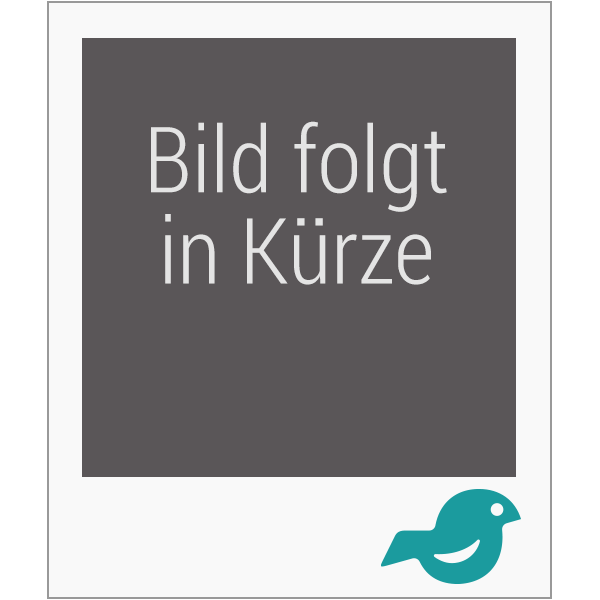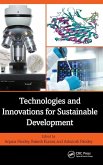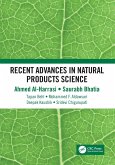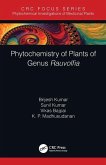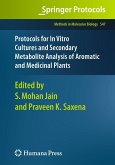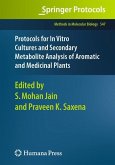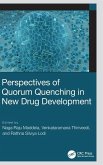Ahmed Al-Rawahi, Ahmed Al-Harrasi, Saif Amur Al Hatmi, Saurabh Bhatia
Medicinal and Aromatic Plants of Oman
Phytochemistry and Ethno-Pharmacological Aspects, Volume 1
Ahmed Al-Rawahi, Ahmed Al-Harrasi, Saif Amur Al Hatmi, Saurabh Bhatia
Medicinal and Aromatic Plants of Oman
Phytochemistry and Ethno-Pharmacological Aspects, Volume 1
- Gebundenes Buch
- Merkliste
- Auf die Merkliste
- Bewerten Bewerten
- Teilen
- Produkt teilen
- Produkterinnerung
- Produkterinnerung
Medicinal plants have received an impetus recently due to revival of attention in natural products in form of herbal medicines demanding convincing knowledge on their phytochemistry, status, cultivation and utilization.
Andere Kunden interessierten sich auch für
![Technologies and Innovations for Sustainable Development Technologies and Innovations for Sustainable Development]() Technologies and Innovations for Sustainable Development150,99 €
Technologies and Innovations for Sustainable Development150,99 €![Recent Advances in Natural Products Science Recent Advances in Natural Products Science]() Ahmed Al-HarrasiRecent Advances in Natural Products Science165,99 €
Ahmed Al-HarrasiRecent Advances in Natural Products Science165,99 €![Phytochemistry of Plants of Genus Rauvolfia Phytochemistry of Plants of Genus Rauvolfia]() Brijesh KumarPhytochemistry of Plants of Genus Rauvolfia30,99 €
Brijesh KumarPhytochemistry of Plants of Genus Rauvolfia30,99 €![Protocols for in Vitro Cultures and Secondary Metabolite Analysis of Aromatic and Medicinal Plants Protocols for in Vitro Cultures and Secondary Metabolite Analysis of Aromatic and Medicinal Plants]() S. Mohan Jain / Praveen K. Saxena (ed.)Protocols for in Vitro Cultures and Secondary Metabolite Analysis of Aromatic and Medicinal Plants202,99 €
S. Mohan Jain / Praveen K. Saxena (ed.)Protocols for in Vitro Cultures and Secondary Metabolite Analysis of Aromatic and Medicinal Plants202,99 €![Pharmacy Informatics Pharmacy Informatics]() Philip O AndersonPharmacy Informatics146,99 €
Philip O AndersonPharmacy Informatics146,99 €![Protocols for In Vitro Cultures and Secondary Metabolite Analysis of Aromatic and Medicinal Plants Protocols for In Vitro Cultures and Secondary Metabolite Analysis of Aromatic and Medicinal Plants]() Protocols for In Vitro Cultures and Secondary Metabolite Analysis of Aromatic and Medicinal Plants108,99 €
Protocols for In Vitro Cultures and Secondary Metabolite Analysis of Aromatic and Medicinal Plants108,99 €![Perspectives of Quorum Quenching in New Drug Development Perspectives of Quorum Quenching in New Drug Development]() Perspectives of Quorum Quenching in New Drug Development165,99 €
Perspectives of Quorum Quenching in New Drug Development165,99 €-
-
-
Medicinal plants have received an impetus recently due to revival of attention in natural products in form of herbal medicines demanding convincing knowledge on their phytochemistry, status, cultivation and utilization.
Hinweis: Dieser Artikel kann nur an eine deutsche Lieferadresse ausgeliefert werden.
Hinweis: Dieser Artikel kann nur an eine deutsche Lieferadresse ausgeliefert werden.
Produktdetails
- Produktdetails
- Verlag: Taylor & Francis Ltd
- Seitenzahl: 352
- Erscheinungstermin: 16. September 2025
- Englisch
- Abmessung: 280mm x 210mm
- Gewicht: 453g
- ISBN-13: 9781032281469
- ISBN-10: 1032281464
- Artikelnr.: 73490230
- Herstellerkennzeichnung
- Libri GmbH
- Europaallee 1
- 36244 Bad Hersfeld
- gpsr@libri.de
- Verlag: Taylor & Francis Ltd
- Seitenzahl: 352
- Erscheinungstermin: 16. September 2025
- Englisch
- Abmessung: 280mm x 210mm
- Gewicht: 453g
- ISBN-13: 9781032281469
- ISBN-10: 1032281464
- Artikelnr.: 73490230
- Herstellerkennzeichnung
- Libri GmbH
- Europaallee 1
- 36244 Bad Hersfeld
- gpsr@libri.de
Ahmed Al-Harrasi received his BSc in Chemistry from Sultan Qaboos University (Oman) in 1997. Then he moved to the Free University of Berlin from which he obtained his MSc in Chemistry in 2002 and then his PhD in Organic Chemistry in 2005 as a DAAD-fellow under the supervision of Prof. Hans-Ulrich Reissig. His PhD work was on New Transformations of Enantiopure 1,2-oxazines. Then he received the Fulbright award in 2008 for postdoctoral research in chemistry for which he joined Prof. Tadhg Begley group at Cornell University where he worked on Synthesis of isotopically labeled thiamin pyrophosphate. After a postdoctoral research stay at Cornell University in 2009, he started his independent research at the University of Nizwa, Oman where he founded the chair of Oman's Medicinal Plants and Marine Natural Products merging chemistry and biology research that became a center of excellence in natural and medical sciences. He is currently a professor of organic chemistry and the vice chancellor for graduate studies, research and external relations at the University of Nizwa. The budget of his interdisciplinary-funded projects exceeds $ 15 million. He is a member of the Scientific Council of UNESCO and a fellow of the Royal Society of Chemistry. He was a chair and invited speaker in many international conferences. He is a referee for more than 20 international chemistry and biotechnology Journals. He has authored and co-authored over 1050 scientific papers, 15 books, 13 patents and 15 book chapters. He taught chemistry courses both at undergraduate and postgraduate levels. He is named in Stanford University's global list of top 2% Scientists in years 2019-2020, 2020-2021, 2021-2022, 2022-2023 and 2023-2024. He received the Order of Royal Commendation from His Majesty, The Sultan of Oman as an outstanding Omani individual for his remarkable contribution and active role in research. Ahmed Al Rawhi earned his M.Sc. and Ph.D. in Plant Pathology from the University of California at Berkeley in 1992 and 1995 respectively. Earlier (1988), he had completed with Honors his B.Sc. in Biological Science at North Carolina State University (Raleigh, USA). Upon his return to Oman, he became a lecturer at Sultan Qaboos University, where he taught courses in the fields of Plant Pathology and Microbiology. He also conducted research in soil-borne pathogens, biocontrol, and disease management programs and published articles in high impact international journals. From December 1997 until May 2001, he had the honor of serving as Minister of Agriculture and Fisheries, and played a major role in developing various strategies and development plans for these vital sectors of the Omani economy. He served as member of the State Council from 2001 to 2011 and led important studies and reports for the government of Oman. He was also Chairman of the Academic Foundation Committee for the University of Nizwa Project from 2000 to 2004, the year he was appointed as Chancellor of the newly founded University. Throughout his tenure as Chancellor, he embarked on bringing the project to reality and creating a functioning academic institution that adheres to institutionalization, quality standards, ethics, and procedures. Under his dynamic leadership, thousands of Omani students graduated with Bachelor's and higher degrees, and the University contributed strongly to community services and produced innovative research relevant to the needs of Oman. He was promoted to the academic position of Founding Professor by a scholarly independent Academic Committee in December 2006. Professor Ahmed Al Rawahi is a member of various national academic committees including the Education Council, and Research Council. He was also a member of the American Pathological Society. In November 2000, he was greatly honored to receive from HM Sultan Qaboos bin Said the Oman Medal of Merits (2nd degree, civil). In December 2013, the University of Wisconsin Oshkosh awarded him the Honorary Doctorate Degree in recognition of his role as "a distinguished and visionary academic leader with an international voice and perspective". Saif Amur Al Hatmi is both botanist and ethnobotanist who has worked since 2006 in Oman Botanic Garden specializing mostly on the Omani flora and their economic importance in the society. He studied Environmental Biology at the Sultan Qaboos University. In 2006, with a Bachelor degree in Environmental Biology and a Master's degree in ethnobotany from the Kent University (UK) in 2012. He has led and conducted numerous scientific expeditions and research teams throughout the country to discover and document the plant heritage of Omani flora and conservation related issues that affect the vegetation and native plant habitats. Saurabh Bhatia is a pharmaceutical biologist with almost 14 years of research and academic experience in a multitude of transdisciplinary research related to pharmaceutical and food sciences. He earned his Ph.D. Degree (2015) in pharmaceutical technology from Jadavpur University, Kolkata. He authored more than 120 articles and 10 books in the area of biopolymers and natural products. His research focus is exploring the food and pharmaceutical application of biopolymer based films as sustainable packaging material and drug delivery system.
Genus Abelmoschus Medik. Genus Abutilon Mill. Genus Acacia (Senegalia Raf.
and Vachellia Whight & Arn.). Genus Acalypha L. Genus Achyranthens L. Genus
Acridocarpus Guill., Perr. & A.Rich. Genus Adansonia L. Genus Adenosciadium
H.Wolff. Genus Adenium Roem. & Schult. Genus Aerva Forssk. Genus Aizoon L.
Genus Alectra Thunb. Genus Aloe L. Genus Allophylus L. Genus Alternanthera
Forssk. Genus Amaranthus L. Genus Anagallis L. Genus Ammi L. Genus
Anastatica L. Genus Andrachne L. Genus Argemone L. Genus Anthemis L. Genus
Anticharis Endl. Genus Anogeissus (Terminalia L. ) Genus Apium L. Genus
Ageratum L. Genus Arnebia Forssk. Genus Azima Lam. Genus Aristolochia L.
Genus Artemisia L. Genus Arthrocaulon Piirainen & G.Kadereit Genus Asperugo
L. Genus Asplenium L. Genus Asphodelus L. Genus Asteriscus (Pallenis
(Cass.) Cass. Genus Astragalus L. Genus Atractylis L. Genus Atriplex L.
Genus Bacopa Aubl. Genus Balanites Delile Genus Basananthe Peyr. Genus
Berberis L. Genus Bergia L. Genus Bidens L. Genus Blepharis Juss. Genus
Blumea DC. Genus Boerhavia Vaill. ex L. Genus Boscia Lam. Genus Boswellia
Roxb. ex Colebr. Genus Cadaba Forssk. Genus Cadia Forssk. Genus Calligonum
L. Genus Calendula L. Genus Calotropis R.Br. Genus Capparis Tourn. ex L.
Genus Caralluma (Desmidorchis Ehrenb.) Genus Cardiospermum L. Genus
Chenopodium L. Genus Carduus L. Genus Carissa L. Genus Caudanthera Plowes
Genus Carthamus L. Genus Centaurea L. Genus Centaurium Hill Genus Ceratonia
L. Genus Chlorophytum Ker Gawl. Genus Chrozophora Neck. ex A.Juss. Genus
Cichorium L. Genus Cissus L. Genus Cistanche Hoffmanns. & Link Genus
Citrullus Schrad. Genus Citrus L. Genus Clematis L. Genus Cleome L. Genus
Corbichonia Scop. Genus Commiphora Jacq. Genus Convolvulus L. Genus
Corchorus L. Genus Cordia L. Genus Cornulaca Delil Genus Corallocarpus
Welw. ex Hook.f. Genus Ceropegia L. Genus Cressa L. Genus Crotalaria L.
Genus Croton L. Genus Cucumis L. Genus Cuscuta L. Genus Cymbopogon Spring.
Genus Cyphostemma (Planch.) Alston Genus Cyperus L. Genus Dalbergia L.f.
Genus Dalechampia Plum. ex L. Genus Daphne Tourn. ex L. Genus Datura L.
Genus Delonix Raf. Genus Dionysia Fenzl Genus Dipcadi Medik. Genus
Diplotaxis DC. Genus Dipterygium Decne. Genus Dodonaea Mill. Genus
Dorstenia Plum. ex L. Genus Dracaena Vand. ex L. Genus Ducrosia Boiss.
Genus Dyerophytum Kuntze (Pumbago Tourn. ex L.). Reference
and Vachellia Whight & Arn.). Genus Acalypha L. Genus Achyranthens L. Genus
Acridocarpus Guill., Perr. & A.Rich. Genus Adansonia L. Genus Adenosciadium
H.Wolff. Genus Adenium Roem. & Schult. Genus Aerva Forssk. Genus Aizoon L.
Genus Alectra Thunb. Genus Aloe L. Genus Allophylus L. Genus Alternanthera
Forssk. Genus Amaranthus L. Genus Anagallis L. Genus Ammi L. Genus
Anastatica L. Genus Andrachne L. Genus Argemone L. Genus Anthemis L. Genus
Anticharis Endl. Genus Anogeissus (Terminalia L. ) Genus Apium L. Genus
Ageratum L. Genus Arnebia Forssk. Genus Azima Lam. Genus Aristolochia L.
Genus Artemisia L. Genus Arthrocaulon Piirainen & G.Kadereit Genus Asperugo
L. Genus Asplenium L. Genus Asphodelus L. Genus Asteriscus (Pallenis
(Cass.) Cass. Genus Astragalus L. Genus Atractylis L. Genus Atriplex L.
Genus Bacopa Aubl. Genus Balanites Delile Genus Basananthe Peyr. Genus
Berberis L. Genus Bergia L. Genus Bidens L. Genus Blepharis Juss. Genus
Blumea DC. Genus Boerhavia Vaill. ex L. Genus Boscia Lam. Genus Boswellia
Roxb. ex Colebr. Genus Cadaba Forssk. Genus Cadia Forssk. Genus Calligonum
L. Genus Calendula L. Genus Calotropis R.Br. Genus Capparis Tourn. ex L.
Genus Caralluma (Desmidorchis Ehrenb.) Genus Cardiospermum L. Genus
Chenopodium L. Genus Carduus L. Genus Carissa L. Genus Caudanthera Plowes
Genus Carthamus L. Genus Centaurea L. Genus Centaurium Hill Genus Ceratonia
L. Genus Chlorophytum Ker Gawl. Genus Chrozophora Neck. ex A.Juss. Genus
Cichorium L. Genus Cissus L. Genus Cistanche Hoffmanns. & Link Genus
Citrullus Schrad. Genus Citrus L. Genus Clematis L. Genus Cleome L. Genus
Corbichonia Scop. Genus Commiphora Jacq. Genus Convolvulus L. Genus
Corchorus L. Genus Cordia L. Genus Cornulaca Delil Genus Corallocarpus
Welw. ex Hook.f. Genus Ceropegia L. Genus Cressa L. Genus Crotalaria L.
Genus Croton L. Genus Cucumis L. Genus Cuscuta L. Genus Cymbopogon Spring.
Genus Cyphostemma (Planch.) Alston Genus Cyperus L. Genus Dalbergia L.f.
Genus Dalechampia Plum. ex L. Genus Daphne Tourn. ex L. Genus Datura L.
Genus Delonix Raf. Genus Dionysia Fenzl Genus Dipcadi Medik. Genus
Diplotaxis DC. Genus Dipterygium Decne. Genus Dodonaea Mill. Genus
Dorstenia Plum. ex L. Genus Dracaena Vand. ex L. Genus Ducrosia Boiss.
Genus Dyerophytum Kuntze (Pumbago Tourn. ex L.). Reference
Genus Abelmoschus Medik. Genus Abutilon Mill. Genus Acacia (Senegalia Raf.
and Vachellia Whight & Arn.). Genus Acalypha L. Genus Achyranthens L. Genus
Acridocarpus Guill., Perr. & A.Rich. Genus Adansonia L. Genus Adenosciadium
H.Wolff. Genus Adenium Roem. & Schult. Genus Aerva Forssk. Genus Aizoon L.
Genus Alectra Thunb. Genus Aloe L. Genus Allophylus L. Genus Alternanthera
Forssk. Genus Amaranthus L. Genus Anagallis L. Genus Ammi L. Genus
Anastatica L. Genus Andrachne L. Genus Argemone L. Genus Anthemis L. Genus
Anticharis Endl. Genus Anogeissus (Terminalia L. ) Genus Apium L. Genus
Ageratum L. Genus Arnebia Forssk. Genus Azima Lam. Genus Aristolochia L.
Genus Artemisia L. Genus Arthrocaulon Piirainen & G.Kadereit Genus Asperugo
L. Genus Asplenium L. Genus Asphodelus L. Genus Asteriscus (Pallenis
(Cass.) Cass. Genus Astragalus L. Genus Atractylis L. Genus Atriplex L.
Genus Bacopa Aubl. Genus Balanites Delile Genus Basananthe Peyr. Genus
Berberis L. Genus Bergia L. Genus Bidens L. Genus Blepharis Juss. Genus
Blumea DC. Genus Boerhavia Vaill. ex L. Genus Boscia Lam. Genus Boswellia
Roxb. ex Colebr. Genus Cadaba Forssk. Genus Cadia Forssk. Genus Calligonum
L. Genus Calendula L. Genus Calotropis R.Br. Genus Capparis Tourn. ex L.
Genus Caralluma (Desmidorchis Ehrenb.) Genus Cardiospermum L. Genus
Chenopodium L. Genus Carduus L. Genus Carissa L. Genus Caudanthera Plowes
Genus Carthamus L. Genus Centaurea L. Genus Centaurium Hill Genus Ceratonia
L. Genus Chlorophytum Ker Gawl. Genus Chrozophora Neck. ex A.Juss. Genus
Cichorium L. Genus Cissus L. Genus Cistanche Hoffmanns. & Link Genus
Citrullus Schrad. Genus Citrus L. Genus Clematis L. Genus Cleome L. Genus
Corbichonia Scop. Genus Commiphora Jacq. Genus Convolvulus L. Genus
Corchorus L. Genus Cordia L. Genus Cornulaca Delil Genus Corallocarpus
Welw. ex Hook.f. Genus Ceropegia L. Genus Cressa L. Genus Crotalaria L.
Genus Croton L. Genus Cucumis L. Genus Cuscuta L. Genus Cymbopogon Spring.
Genus Cyphostemma (Planch.) Alston Genus Cyperus L. Genus Dalbergia L.f.
Genus Dalechampia Plum. ex L. Genus Daphne Tourn. ex L. Genus Datura L.
Genus Delonix Raf. Genus Dionysia Fenzl Genus Dipcadi Medik. Genus
Diplotaxis DC. Genus Dipterygium Decne. Genus Dodonaea Mill. Genus
Dorstenia Plum. ex L. Genus Dracaena Vand. ex L. Genus Ducrosia Boiss.
Genus Dyerophytum Kuntze (Pumbago Tourn. ex L.). Reference
and Vachellia Whight & Arn.). Genus Acalypha L. Genus Achyranthens L. Genus
Acridocarpus Guill., Perr. & A.Rich. Genus Adansonia L. Genus Adenosciadium
H.Wolff. Genus Adenium Roem. & Schult. Genus Aerva Forssk. Genus Aizoon L.
Genus Alectra Thunb. Genus Aloe L. Genus Allophylus L. Genus Alternanthera
Forssk. Genus Amaranthus L. Genus Anagallis L. Genus Ammi L. Genus
Anastatica L. Genus Andrachne L. Genus Argemone L. Genus Anthemis L. Genus
Anticharis Endl. Genus Anogeissus (Terminalia L. ) Genus Apium L. Genus
Ageratum L. Genus Arnebia Forssk. Genus Azima Lam. Genus Aristolochia L.
Genus Artemisia L. Genus Arthrocaulon Piirainen & G.Kadereit Genus Asperugo
L. Genus Asplenium L. Genus Asphodelus L. Genus Asteriscus (Pallenis
(Cass.) Cass. Genus Astragalus L. Genus Atractylis L. Genus Atriplex L.
Genus Bacopa Aubl. Genus Balanites Delile Genus Basananthe Peyr. Genus
Berberis L. Genus Bergia L. Genus Bidens L. Genus Blepharis Juss. Genus
Blumea DC. Genus Boerhavia Vaill. ex L. Genus Boscia Lam. Genus Boswellia
Roxb. ex Colebr. Genus Cadaba Forssk. Genus Cadia Forssk. Genus Calligonum
L. Genus Calendula L. Genus Calotropis R.Br. Genus Capparis Tourn. ex L.
Genus Caralluma (Desmidorchis Ehrenb.) Genus Cardiospermum L. Genus
Chenopodium L. Genus Carduus L. Genus Carissa L. Genus Caudanthera Plowes
Genus Carthamus L. Genus Centaurea L. Genus Centaurium Hill Genus Ceratonia
L. Genus Chlorophytum Ker Gawl. Genus Chrozophora Neck. ex A.Juss. Genus
Cichorium L. Genus Cissus L. Genus Cistanche Hoffmanns. & Link Genus
Citrullus Schrad. Genus Citrus L. Genus Clematis L. Genus Cleome L. Genus
Corbichonia Scop. Genus Commiphora Jacq. Genus Convolvulus L. Genus
Corchorus L. Genus Cordia L. Genus Cornulaca Delil Genus Corallocarpus
Welw. ex Hook.f. Genus Ceropegia L. Genus Cressa L. Genus Crotalaria L.
Genus Croton L. Genus Cucumis L. Genus Cuscuta L. Genus Cymbopogon Spring.
Genus Cyphostemma (Planch.) Alston Genus Cyperus L. Genus Dalbergia L.f.
Genus Dalechampia Plum. ex L. Genus Daphne Tourn. ex L. Genus Datura L.
Genus Delonix Raf. Genus Dionysia Fenzl Genus Dipcadi Medik. Genus
Diplotaxis DC. Genus Dipterygium Decne. Genus Dodonaea Mill. Genus
Dorstenia Plum. ex L. Genus Dracaena Vand. ex L. Genus Ducrosia Boiss.
Genus Dyerophytum Kuntze (Pumbago Tourn. ex L.). Reference

